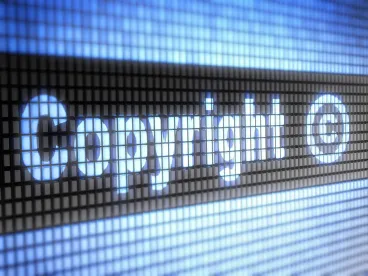On June 2, technology companies and copyright holders testified before Congress about the effectiveness of the Digital Millennium Copyright Act’s (DMCA) “safe harbor” provision. These testimonies came after the U.S. Copyright Office released its long-anticipated May 21 report, which studied and discussed DMCA’s effectiveness and the safe harbor provision.
The Digital Millennium Copyright Act was passed in 1998 to address multiple issues related to using copyrighted materials on online platforms. Among its many provisions, the DMCA criminalizes the dissemination and production of technologies intended to circumvent measures that control or limit access to copyrighted works. Similarly, it criminalizes the act of circumventing an access control, regardless of whether there is copyright infringement. The DMCA also heightened the penalties associated with copyright infringement on the internet. Notably, the DMCA also limits the liability of online service providers (OSPs) for acts of copyright infringement by users of their services.
Section 512 of the Copyright Act, or the “safe harbor” provision, was enacted as part of the DMCA to establish a system where copyright owners and OSPs could address online copyright infringement. Section 512 provides protection for both the rights-holders and the OSPs that police potential copyright infringements. Section 512 protects the rights-holders’ interests by listing the notice requirements necessary to report copyright infringement cases to OSPs. In turn, Section 512 gives OSPs safe harbor from potential monetary damages for their users’ infringing activities, as long as the OSPs meet specific requirements. These requirements are generally satisfied when the OSP (1) complies with standard technical measures used by copyright owners to identify or protect copyrighted works, and (2) removes repeat infringers.
Additionally, Section 512 requires that the OSP:
-
- Does not have actual knowledge of infringing content or is not aware of any facts or circumstances that would make the infringing activity or content apparent;
- Does not receive a financial benefit directly attributable to the infringing activity or content; and
- Upon notification of the infringing content or activity, the OSP acts expeditiously to remove or disable access to the allegedly infringing content.
For rights-holders, Section 512 lists several requirements that they must comply with when notifying OSPs about allegedly infringing content. This notification is the first step in what is referred to as a “notice-and-takedown” procedure. A notice-and-takedown procedure, typically consists of:
-
- The rights-holder reports the allegedly infringing content to the OSP by submitting a takedown notice;
- The OSP removes or disables access to the allegedly infringing content;
- The OSP takes reasonable steps to notify the alleged infringer of the removal;
- If the alleged infringer submits a counter-notification, the OSP must then inform the reporting rights-holder; and
- If the rights-holder does not bring a lawsuit in district court within 14 days, the OSP must restore the content.
The above framework was the subject of the U.S. Copyright Office’s 192 page May 21 report published after a multi-year study of the DMCA and Section 512. In 2015, the Office published an initial Notice of Inquiry seeking written comments to a series of questions about the DMCA and Section 512. The Office received over 92,000 written submissions in response. The Office’s subsequent Notice of Inquiry received over 70 written submissions and nine empirical studies. The report largely concluded that DMCA is working and does not need “wholesale changes,” however, the Office noted that the balance Congress intended might be askew.
Notably, the report noted tensions between OSPs and rights-holders. The report discussed that while OSPs and user advocacy groups supported and reported satisfaction with Section 512’s framework, creators and rights-holders did not share the same sentiments. The report pointed out that “[d]espite the advances in legitimate content options and delivery systems, and despite the millions of takedown notices submitted on a daily basis, the scale of online copyright infringement and the lack of effectiveness of section 512 notices to address that situation remain significant problems.” To address this issue, the Office identified specific areas in which Congress may wish to implement changes to balance OSPs’ and rights-holders’ rights.
The tensions described between OSPs and rights-holders were evident in the June 2 testimonies to Congress. Creators, such as Don Henley of the Eagles, testified that “the DMCA was supposed to provide digital platforms with safe harbor from liability in exchange for cooperation in protecting creators’ works. It was meant to provide a proper balance and symbiotic relationship . . . .” Henley concluded, however, that the balance initially sought is now “decidedly off.” In contrast, OSPs, technology companies, and trade group internet associations testified that the DMCA and safe harbor system works. They explained that many OSPs and online platforms provide more protection to rights-holders than is required by the DMCA. Furthermore, these companies also testified that they actively work with creative industries to continue protecting the rights-holders’ rights.
On May 29, members of the Senate Judiciary Committee Subcommittee on Intellectual Property sent a letter to the Copyright Office asking a series of follow-up questions about the report and requesting technical assistance. The Office sent its response to the Subcommittee on June 29, providing further guidance.
As the Copyright Office’s report discussed, modern internet policies cannot be one-size-fits-all — it is now up to Congress to determine if and how the DMCA can be tailored to protect both creators and OSPs alike.





 />i
/>i

